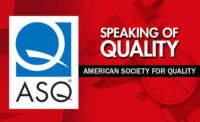During the test, which took place in August, engineering data was shared among eight companies in North America and Europe, including Ford Motor Co., Renault, Siemens VDO Automotive Corp., Johnson Controls Inc., TRW Automotive, EDS, PTC and MatrixOne Inc. Files that were generated on individual company's highly customized and configured systems were shared throughout AIAG's pilot supply chain without the loss of data or operability.
According to the AIAG, computer-generated product data currently is difficult or impossible to read on any system but the one on which they are created, forcing parts suppliers to purchase and maintain several, perhaps dozens, of product development and computer-aided design systems. AIAG has been working to solve the incompatibility issues since the mid-1990s.
The success of the pilot program promises to accelerate the need for online engineering collaboration and speed up vehicle development, according to Akram Yunas, program manager for AIAG's Interoperability Pilot Program. He likens the incompatibility problem to the early conflict between VHS and Betamax formats in the video recorder industry. The data sharing problem is made worse because of the dozens of conflicting product development and engineering design formats used in the industry.
"We are within reach of true product development interconnectivity," says Yunas. "We now have the means to cut out a huge source of duplication and waste in the auto industry." Analysts have estimated the cost of engineering incompatibility at $20 billion worldwide and at least $1.4 billion annually in the auto industry.


